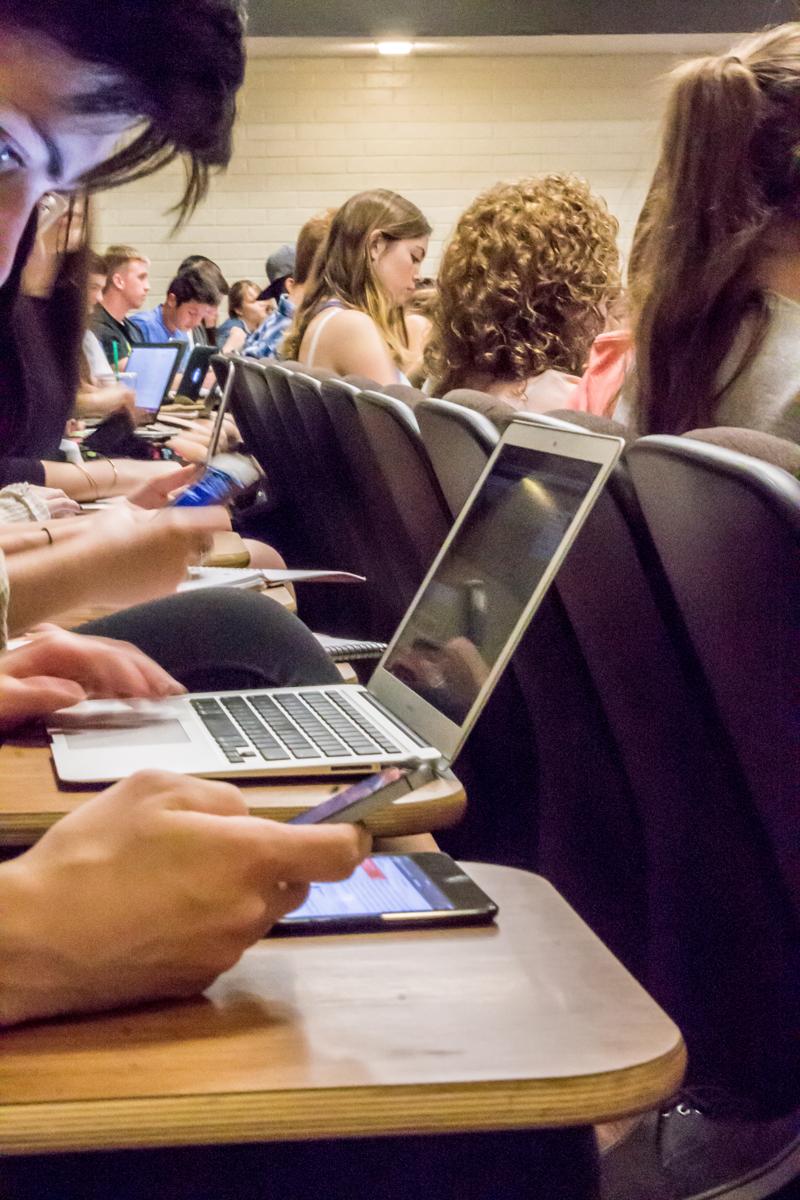Though some professors do not allow the use of laptops in the classroom, many would consider revamping their traditional classroom setting into a hybrid course environment.
WHAT IS A HYBRID CLASS?
Hybrid courses — classes split between in-person classroom settings and having a portion of the class online — have increased in number on campus. However, there is no definite number of hybrid courses at Biola, the reason being many faculty members use technology in different ways, said Susan Ishii, chief educational technology officer.
“A faculty member is in the best possible position to identify how he or she believes technology will be most effectively utilized within a course,” Ishii said.
Professors say that technology use distracts students, as well as for themselves. Chris Grace, professor of psychology, does not allow laptops in his classes. Grace provided a study that showed students spend 40 percent of their class time using applications on laptops and cell phones.
“I value what happens in a classroom to such an extent that I want it to be a place that’s holy, a place where we meet each other, a place that we can connect,” Grace said.
The main reason professors do not allow students to use technology in classrooms because it becomes purely a distraction for both parties.
“The reason I ban laptops is because there is a huge concern I have about maintaining connectedness in a classroom where I have spent massive amounts of time trying to equip students and tell you what’s good,” Grace said.
THE LEARNING PROCESS
A majority of students at Biola prefer to take handwritten notes in a traditional classroom setting.
“It’s better to write it out so it’s ingrained in your memory better,” said freshman Olivia Hill.
Many students prefer to take handwritten notes because they are able to remember more course content.
“I’m more of a kinesthetic learner. I remember better when I write it out,” said senior English major Kaitlin Lanning.
HYBRID COURSES OVER TRADITIONAL CLASSROOMS
Some professors welcome hybrid courses and have no preference as to whether students watch the lecture, as long as they are learn the material. Grace said he would have no problem switching his traditional courses to hybrid courses, as they are both very different.
Jason Oakes, associate professor of biblical and theological studies, is concerned with how the students prefer to learn and makes sure other professors are too.
“I’ve asked the students, ‘What do you think about us running this as a hybrid course?’ and almost to a person the students have told me they wouldn’t want that,” Oakes said.
Lanning said that she prefers traditional classroom settings as opposed to hybrid courses.
“Personal interaction is something my brain registers better. I’m more likely to remember people rather than pixels,” Lanning said.
However, some students with busy schedules prefer hybrid courses over a traditional classrooms.
“You can do it on your own time. You can schedule class around your life and rather than your life around class,” said Holly Harvey, freshman business major.







